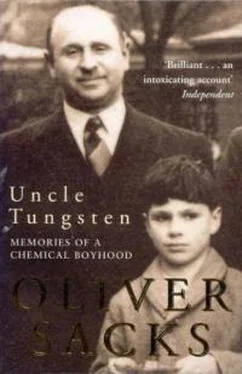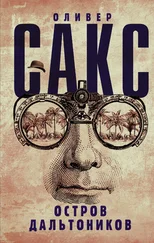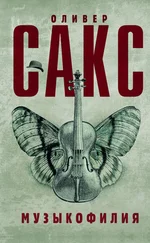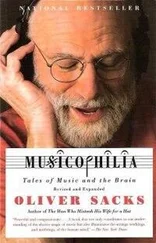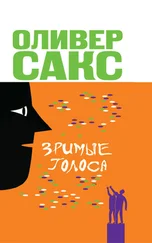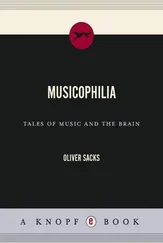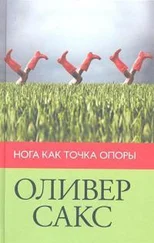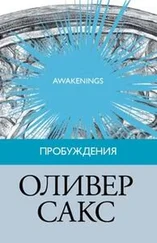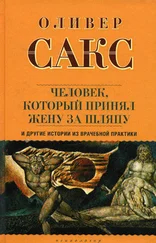There was a special, rare pleasure about this performance. My chemistry and mineralogy and science were all private, shared with my uncles but with nobody else. The recital, in contrast, was open and public, with appreciation, exchange, giving and receiving. It was the opening of something new, the start of an intercourse.
We gloried shamelessly in the luxury of the Schweizerhof, lying for hours, it seemed, in the enormous marble baths, eating ourselves sick in the opulent restaurant. But eventually we grew tired of overindulgence and started to wander through the old city with its crooked streets and its sudden views of mountain and lake. We took the funicular train up its cogwheel track to the summit of Mount Rigi – my first time on a funicular, or a mountain. And then we moved to the alpine village of Arosa, where the air was cool and dry, and I saw edelweiss and gentian for the first time, and tiny churches of painted wood, and heard the alpenhorn resound from valley to valley. It was in Arosa, I think, even more than Lucerne, that a sudden sense of joyousness finally overcame me, a feeling of liberation and release, a sense of the sweetness of life, of a future, of promise. I was thirteen – thirteen! – did not life stand before me?
On the return journey, we stopped in Zurich (the town, Uncle Abe once told me, where Euler the mathematician had been born). And this stay, while otherwise unremarkable, remains in my memory for a very special reason. My father, who always sought out a swimming pool wherever he stayed, located a large municipal pool in the city. He immediately started lapping the pool, with the powerful overarm of which he was a master, but I, in a lazier mood, found a corkboard, hoisted myself upon it, and decided, for once, to let it buoy me, and just float. I lost all sense of time as I floated, lying still on the board, or paddling very gently. A strange ease, a sort of rapture came upon me – a feeling I had sometimes known in dreams. I had floated on corkboards, or rubber rings, or waterwings before, but this time something magical was happening, a slowly swelling, enormous wave of joy that lifted me higher and higher, seemed to go on and on, forever, and then finally subsided in a languorous bliss. It was the most beautiful, peaceful feeling I had ever had.
It was only when I came to take off my swimming trunks that I realized I must have had an orgasm. It did not occur to me to connect this with ‘sex’, or other people; I did not feel anxious or guilty – but I kept it to myself, feeling it as magic, private, a benison or grace that had come upon me spontaneously, unsought. I felt as if I had discovered a great secret.
* * *
In January 1946 I moved from my prep school in Hampstead, The Hall, to a much larger school, St. Paul’s, in Hammersmith. It was here, in the Walker Library, that I met Jonathan Miller for the first time: I was hidden in a corner, reading a nineteenth-century book on electrostatics – reading, for some reason, about ‘electric eggs’ – when a shadow fell across the page. I looked up and saw an astonishingly tall, gangling boy with a very mobile face, brilliant, impish eyes, and an exuberant mop of reddish hair. We got talking together, and have been close friends ever since.
Prior to this time, I had had only one real friend, Eric Korn, whom I had known almost from birth. Eric followed me from The Hall to St. Paul’s a year later, and now he and Jonathan and I formed an inseparable trio, bound not only by personal but by family bonds too (our fathers, thirty years earlier, had all been medical students together, and our families had remained close). Jonathan and Eric did not really share my love of chemistry – although they joined in the sodium-throwing experiment and one or two others – but they were intensely interested in biology, and it was inevitable, when the time came, that we would find ourselves together in the same biology class, and that all of us would fall in love with our biology teacher, Sid Pask.
Sid was a splendid teacher. He was also narrow-minded, bigoted, cursed with a hideous stutter (which we would imitate endlessly), and by no means exceptionally intelligent. By dissuasion, irony, ridicule, or force, Mr. Pask would turn us away from all other activities – from sport and sex, from religion and families, and from all our other subjects at school. He demanded that we be as single-minded as himself.
The majority of his pupils found him an impossibly demanding and exacting taskmaster. They would do all they could to escape from this pedant’s petty tyranny, as they regarded it. The struggle would go on for a while, and then suddenly there was no longer any resistance – they were free. Pask no longer carped at them, no longer made ridiculous demands upon their time and energy.
Yet some of us, each year, responded to Pask’s challenge. In return he gave us all of himself – all his time, all his dedication, for biology. We would stay late in the evening with him in the Natural History Museum (I once hid myself in a gallery and managed to spend the night there). We would sacrifice every weekend to plant-collecting expeditions. We would get up at dawn on freezing winter days to go on his January freshwater course. And once a year – there is still an almost intolerable sweetness about the memory – we would go with him to Millport for three weeks of marine biology.
Millport, off the western coast of Scotland, had a beautifully equipped marine biology station, where we were always given a friendly welcome and inducted into whatever experiments were going on. (Fundamental observations were being made on the development of sea urchins at this time, and Lord Rothschild was endlessly patient with the enthusiastic schoolboys who crowded around and peered into his petri dishes with the transparent pluteus larvae.) Jonathan, Eric, and I made several transects on the rocky shore together, counting all the animals and seaweeds we could on successive square-foot portions from the lichen-covered summit of the rock ( Xantboria parietina was the euphonious name of this lichen) to the shoreline and tidal pools below. Eric was particularly and wittily ingenious, and once, when we needed a plumb line to give us a true vertical, but did not know how to suspend it, he pried a limpet from the base of a rock, placed the tip of the plumb line beneath it, and firmly reattached it at the top as a natural drawing pin.
We all adopted particular zoological groups: Eric became enamored of sea cucumbers, holothurians; Jonathan of iridescent bristled worms, polychaetes; and I of squids and cuttlefish, octopuses, cephalopods – the most intelligent and, to my eyes, the most beautiful of invertebrates. One day we all went down to the seashore, to Hythe in Kent, where Jonathan’s parents had taken a house for the summer, and went out for a day’s fishing on a commercial trawler. The fishermen would usually throw back the cuttlefish that ended up in their nets (they were not popular eating in England). But I, fanatically, insisted that they keep them for me, and there must have been dozens of them on the deck by the time we came in. We took all the cuttlefish back to the house in pails and tubs, put them in large jars in the basement, and added a little alcohol to preserve them. Jonathan’s parents were away, so we did not hesitate. We would be able to take all the cuttlefish back to school, to Sid – we imagined his astonished smile as we brought them in – and there would be a cuttlefish apiece for everyone in the class to dissect, two or three apiece for the cephalopod enthusiasts. I myself would give a little talk about them at the Field Club, dilating on their intelligence, their large brains, their eyes with erect retinas, their rapidly changing colors.
A few days later, the day Jonathan’s parents were due to return, we heard dull thuds emanating from the basement, and going down to investigate, we encountered a grotesque scene: the cuttlefish, insufficiently preserved, had putrefied and fermented, and the gases produced had exploded the jars and blown great lumps of cuttlefish all over the walls and floor; there were even shreds of cuttlefish stuck to the ceiling. The intense smell of putrefaction was awful beyond imagination. We did our best to scrape off the walls and remove the exploded, impacted lumps of cuttlefish. We hosed down the basement, gagging, but the stench was not to be removed, and when we opened windows and doors to air out the basement, it extended outside the house as a sort of miasma for fifty yards in every direction.
Читать дальше
